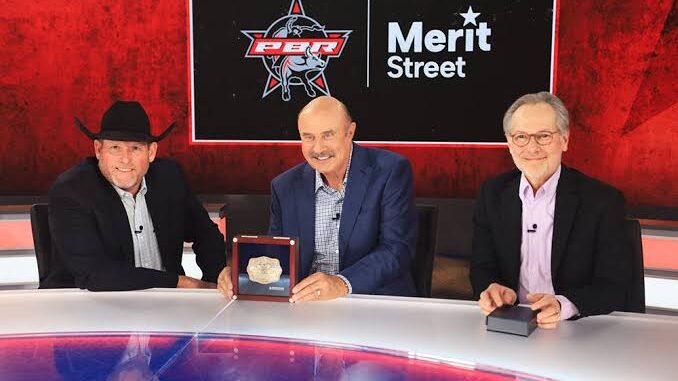
Just In: The CEO of PBR, Sean Gleason, Fired by the Board Amid Internal Turmoil
By Staff Writer, The Daily Chronicle | May 14, 2025
In a stunning move that has sent shockwaves through the professional bull riding community and beyond, Sean Gleason, longtime CEO of Professional Bull Riders (PBR), has been terminated from his position effective immediately. The PBR board of directors announced the decision early Tuesday morning following an emergency closed-door session held late Monday night.
Gleason, who had served as CEO since 2015, was widely regarded as the architect of the PBR’s modern evolution, overseeing massive growth in both national and international markets. Under his leadership, the organization expanded its footprint, increased its prize purses, and launched several high-profile partnerships, including television deals and corporate sponsorships that elevated bull riding to new heights of mainstream attention.
But according to sources familiar with the matter, tensions between Gleason and the board had been building behind the scenes for months. These tensions reportedly culminated in a series of heated disagreements over the strategic direction of the organization, particularly in the wake of mounting criticism surrounding the PBR Teams league, rising operational costs, and controversy over rider safety protocols.
Board Statement and Official Reasoning
In a brief but pointed statement, the PBR board said:
> “After careful consideration and extensive internal deliberations, the Board of Directors has made the difficult decision to terminate Sean Gleason’s employment as CEO of Professional Bull Riders, effective immediately. We recognize Sean’s significant contributions to the sport and to the growth of PBR over the past decade. However, the Board believes it is time for new leadership to guide the organization into its next chapter.”
No specific cause was publicly given for the firing, but multiple sources close to the board indicated that concerns over leadership style, declining ratings for televised events, and a faltering global expansion strategy played key roles in the decision.
Gleason’s Reaction
Sean Gleason has not issued a formal statement but took to social media with a cryptic post on X (formerly Twitter) just minutes after the news broke:
> “Change isn’t always chosen. But it always leads to opportunity. Stay tuned.”
The post has since garnered thousands of likes and comments, with responses ranging from support to speculation. As of press time, Gleason had not granted interviews or offered further elaboration.
A Mixed Legacy
During his tenure, Gleason earned both staunch supporters and vocal critics. Many credit him with professionalizing bull riding in ways previously unimaginable—turning what was once a niche Western sport into a multi-million dollar entertainment enterprise. Under his watch, PBR launched its global circuit, entered the Brazilian and Australian markets more aggressively, and debuted the PBR Teams league, a franchise-based system meant to mirror major league sports formats.
While some hailed the innovation, others called it a misguided attempt to “fix what wasn’t broken.” Attendance and ratings for the Teams format have been inconsistent since its debut in 2022, and insiders say several team owners privately expressed frustration with its return on investment.
Moreover, 2024 was a particularly turbulent year for PBR. A spate of high-profile injuries among riders, a controversial helmet mandate rollout, and increasing pressure from animal rights groups led to intensified scrutiny. Some critics argued that Gleason prioritized profit and spectacle over tradition and safety.
“He pushed the sport into the future, no doubt,” said former rider and PBR analyst Cody Taylor. “But I think he also lost touch with a lot of the people who made PBR what it was in the first place—the cowboys, the fans, the heartland.”
Interim Leadership and Next Steps
The board has named Lisa Darnell, PBR’s current Chief Operating Officer, as interim CEO while a nationwide search begins for a permanent replacement. Darnell, a 12-year veteran of the organization, is known for her operational discipline and was instrumental in launching the organization’s digital ticketing and fan engagement platforms.
“I’m honored to step into this role during a pivotal moment for PBR,” Darnell said in a brief press release. “Our focus remains on the riders, our fans, and the continued growth of bull riding as a premier sport worldwide.”
The board has retained executive search firm Easton & Westwood to lead the CEO recruitment process. Sources suggest the board is looking for a candidate with a mix of sports marketing experience and organizational turnaround expertise.
Industry and Fan Reaction
The reaction to Gleason’s ousting has been swift and passionate. Social media has lit up with responses from fans, sponsors, riders, and industry insiders. While some praised the board’s decision as necessary for the sport’s future, others expressed concern about the abrupt nature of the firing and what it might mean for PBR’s direction.
“We’re stunned,” said Maria Lopez, director of marketing for long-time sponsor Wrangler. “Sean was a force. Whether you agreed with every decision or not, his energy and vision transformed the league. This is the end of an era.”
Top-ranked rider Jess Lockwood shared a more emotional response via Instagram:
> “Sean believed in me from the start. Whatever happens next, I’ll always be grateful for what he did for us riders. Wishing him the best.”
Industry observers are already speculating about whether Gleason might pivot to launching a competing bull riding entity or step into a broader role within professional sports. Some even suggest he may be tapped for leadership within other rodeo organizations or major event production companies.
Looking Ahead
The firing of Sean Gleason marks a pivotal juncture for PBR. As the organization confronts the challenges of maintaining cultural relevance, financial growth, and the delicate balance between innovation and tradition, its next leader will face daunting expectations.
Be the first to comment